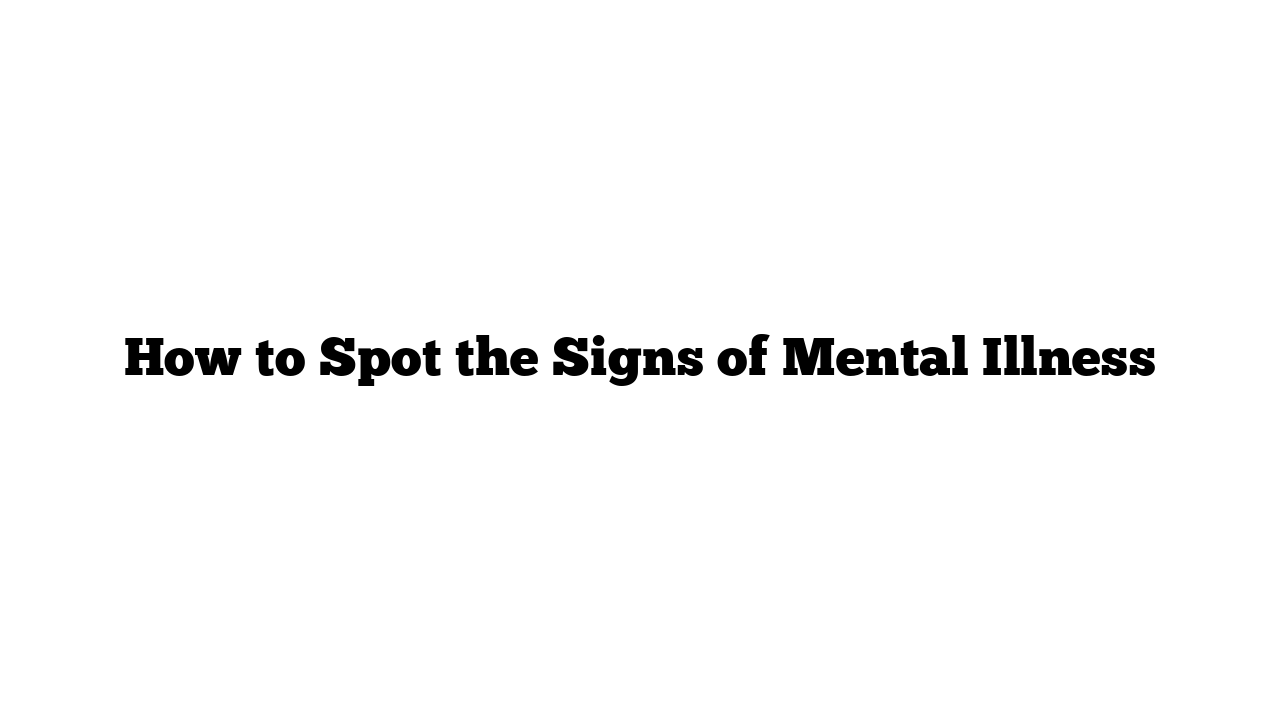Understanding mental health is crucial for recognizing when someone might be struggling. With statistics showing that one in four people will experience a mental health issue in any given year, it’s essential to break through the stigma surrounding mental health and start conversations. This article highlights some key signs and behaviors associated with various mental health conditions.
1. Anxiety
While everyone experiences stress and anxiety from time to time, prolonged and intense feelings can become overwhelming. Some common signs of anxiety include:
- Reduced Concentration: Difficulty focusing on tasks or remembering information.
- Irritability: Becoming easily frustrated or angry over minor issues.
- Avoidance: Steering clear of certain situations or places that trigger anxiety.
If these feelings make it hard to carry out daily tasks or lead to panic attacks, it may indicate a more serious issue.
2. Depression
Experiencing ups and downs is part of life, but when a low mood persists, it can signal depression. Key signs include:
- Persistent Sadness: Feeling hopeless or helpless for an extended period.
- Low Self-Esteem: A tendency to blame oneself or feel guilty about situations.
- Neglect of Responsibilities: Losing interest in personal hygiene, work, or hobbies.
Recognizing these signs early can be critical in seeking help.
3. Bipolar Disorder
Bipolar disorder is characterized by significant mood swings, including manic highs and depressive lows. Symptoms to watch for include:
- Extreme Mood Changes: Shifting from high energy and elation to deep sadness.
- Inability to Concentrate: Difficulty focusing on tasks or engaging in conversations.
- Rapid Speech: Talking quickly or jumping from topic to topic during manic episodes.
These fluctuations can disrupt relationships and daily life.
4. Schizophrenia
Schizophrenia is often misunderstood and involves a disconnection from reality. Signs include:
- Delusions: Holding strong beliefs that are not based in reality.
- Hallucinations: Hearing voices or seeing things that others do not.
- Distracted Behavior: Difficulty maintaining a conversation due to focus on internal thoughts.
These symptoms can significantly impact daily functioning and relationships.
5. Obsessive-Compulsive Disorder (OCD)
OCD combines anxiety with obsessive thoughts and compulsive behaviors. Common indicators are:
- Repetitive Actions: Engaging in rituals like handwashing or checking locks multiple times.
- Intrusive Thoughts: Experiencing unwelcome thoughts about dirt or contamination.
- Anxiety Over Interruptions: Becoming upset if rituals are disrupted.
Recognizing these behaviors can help those affected find appropriate support.
6. Seeking Help
If you or someone you know exhibits signs of mental illness, remember that you are not alone. Reaching out for help is a brave step. Organizations like Wilch Mind offer peer support groups, counseling, and telephone services to assist those struggling with mental health issues.
